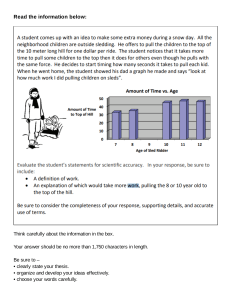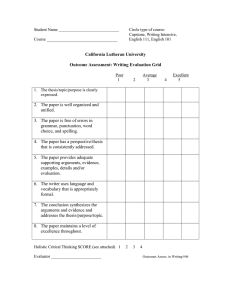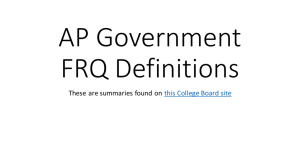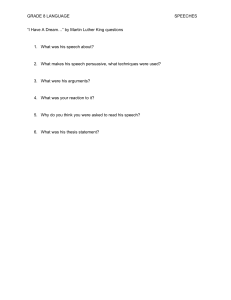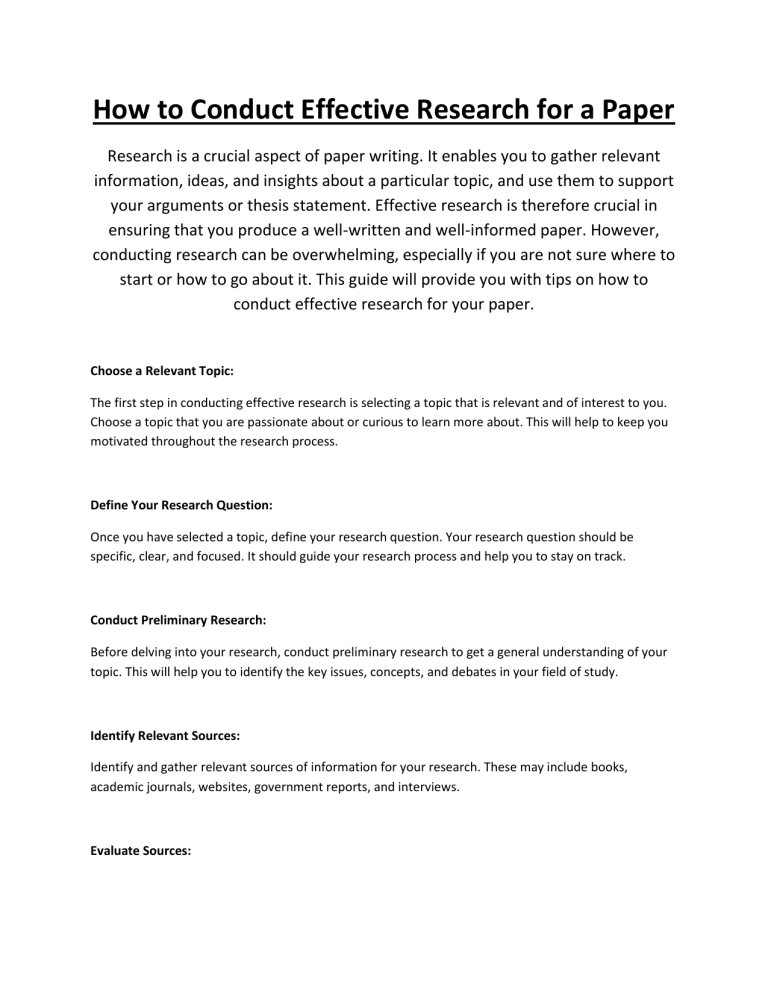
How to Conduct Effective Research for a Paper Research is a crucial aspect of paper writing. It enables you to gather relevant information, ideas, and insights about a particular topic, and use them to support your arguments or thesis statement. Effective research is therefore crucial in ensuring that you produce a well-written and well-informed paper. However, conducting research can be overwhelming, especially if you are not sure where to start or how to go about it. This guide will provide you with tips on how to conduct effective research for your paper. Choose a Relevant Topic: The first step in conducting effective research is selecting a topic that is relevant and of interest to you. Choose a topic that you are passionate about or curious to learn more about. This will help to keep you motivated throughout the research process. Define Your Research Question: Once you have selected a topic, define your research question. Your research question should be specific, clear, and focused. It should guide your research process and help you to stay on track. Conduct Preliminary Research: Before delving into your research, conduct preliminary research to get a general understanding of your topic. This will help you to identify the key issues, concepts, and debates in your field of study. Identify Relevant Sources: Identify and gather relevant sources of information for your research. These may include books, academic journals, websites, government reports, and interviews. Evaluate Sources: Evaluate the sources you have identified to ensure they are credible, reliable, and relevant to your research question. This will help you to avoid using inaccurate or biased information in your paper. Take Notes: As you conduct your research, take notes on the key ideas, concepts, and arguments presented in each source. This will help you to organize your thoughts and ideas and identify patterns and connections between different sources. Organize Your Notes: Organize your notes into a clear and coherent structure. This will help you to identify gaps in your research and ensure that your paper is well-structured and easy to follow. Develop a Thesis Statement: Based on your research, develop a clear and concise thesis statement that reflects your research question and the main argument of your paper. Use Different Types of Sources: Use a variety of sources, including primary and secondary sources, to support your arguments and thesis statement. This will help to provide a well-rounded and balanced view of your topic. Use Relevant Keywords: Use relevant keywords to search for information on your topic. This will help you to identify the most relevant and up-to-date sources of information. Consult with Librarians: Consult with librarians or research specialists in your field of study. They can provide you with valuable advice on how to conduct effective research and identify relevant sources of information. Search Different Databases: Search different databases, including academic and specialized databases, to find relevant sources of information for your research. Stay Organized: Stay organized throughout the research process by keeping track of your sources and notes. Use tools like reference management software to help you manage your sources and citations. Keep an Open Mind: Keep an open mind throughout the research process. Be willing to explore new ideas and perspectives and challenge your assumptions. Check Your Bias: Check your bias throughout the research process to ensure that your paper is objective and impartial. Avoid using sources that are biased or one-sided. Use Multiple Perspectives: Use multiple perspectives to support your arguments and thesis statement. This will help to provide a well-rounded view of your topic. Be Critical: Be critical of the sources you use and the arguments presented in them. Evaluate the evidence presented and consider alternative perspectives. Identify Patterns: Look for commonalities, trends, and patterns in the research that can support your argument. Organize your notes and findings in a way that highlights these patterns, as they can add credibility to your paper and make it more compelling. Use Reliable Sources: Ensure that the sources you use are reliable and credible. Use peer-reviewed articles, books, and reputable websites to support your research. Avoid using biased sources or those with a clear agenda. Analyze Your Sources: Analyze the sources you use critically. Don't just accept the information at face value, but instead, evaluate it and assess its validity. Consider the author's credibility, the research methods used, and the evidence presented. Take Notes: Take detailed notes as you conduct your research. Organize your notes in a way that makes sense to you, using bullet points, outlines, or mind maps. This will help you stay organized and make it easier to write your paper. Create an Outline: Once you have conducted your research, create an outline for your paper. This will help you organize your thoughts and ensure that your paper flows logically. Your outline should include an introduction, body paragraphs, and a conclusion. Write Your First Draft: Begin writing your first draft, using your outline and notes as a guide. Don't worry about being perfect at this stage; the goal is to get your ideas down on paper. You can refine and edit your work later. Revise and Edit: Once you have completed your first draft, revise and edit your work. Look for ways to improve the organization, clarity, and coherence of your paper. Check for grammar and spelling errors, and ensure that you have cited your sources correctly. Seek Feedback: Share your paper with peers, colleagues, or your instructor and seek their feedback. Consider their suggestions and incorporate them into your work as appropriate. Proofread: Once you have made revisions and edits, proofread your paper carefully. Look for errors in grammar, punctuation, and spelling. Ensure that your citations are correct and that your paper adheres to the required formatting guidelines. Submit Your Paper: Once you have completed all of the necessary revisions and proofreading, submit your paper. Be sure to submit it before the deadline and according to the guidelines provided by your instructor or institution. Learn from Feedback: If you receive feedback from your instructor or peers, take it as an opportunity to learn and grow as a writer. Consider how you can incorporate their suggestions into your future work and continue to improve your research and writing skills. Continue to Improve: Conducting effective research is a skill that takes time and practice to master. Continue to seek opportunities to improve your research skills, whether through additional coursework, workshops, or independent study. Enjoy the Process: Conducting research can be challenging but also rewarding. Embrace the opportunity to learn and discover new information, and enjoy the process of creating a well-researched and thoughtful paper. In conclusion, conducting effective research is essential to writing a high-quality paper. By following these tips, you can ensure that you are using reliable sources, gathering enough information, and organizing your findings in a logical and coherent manner. Remember to stay focused, stay organized, and stay curious, and you will be well on your way to conducting successful research for your next paper. With practice and perseverance, you can become a skilled researcher and produce work that is both informative and insightful.
